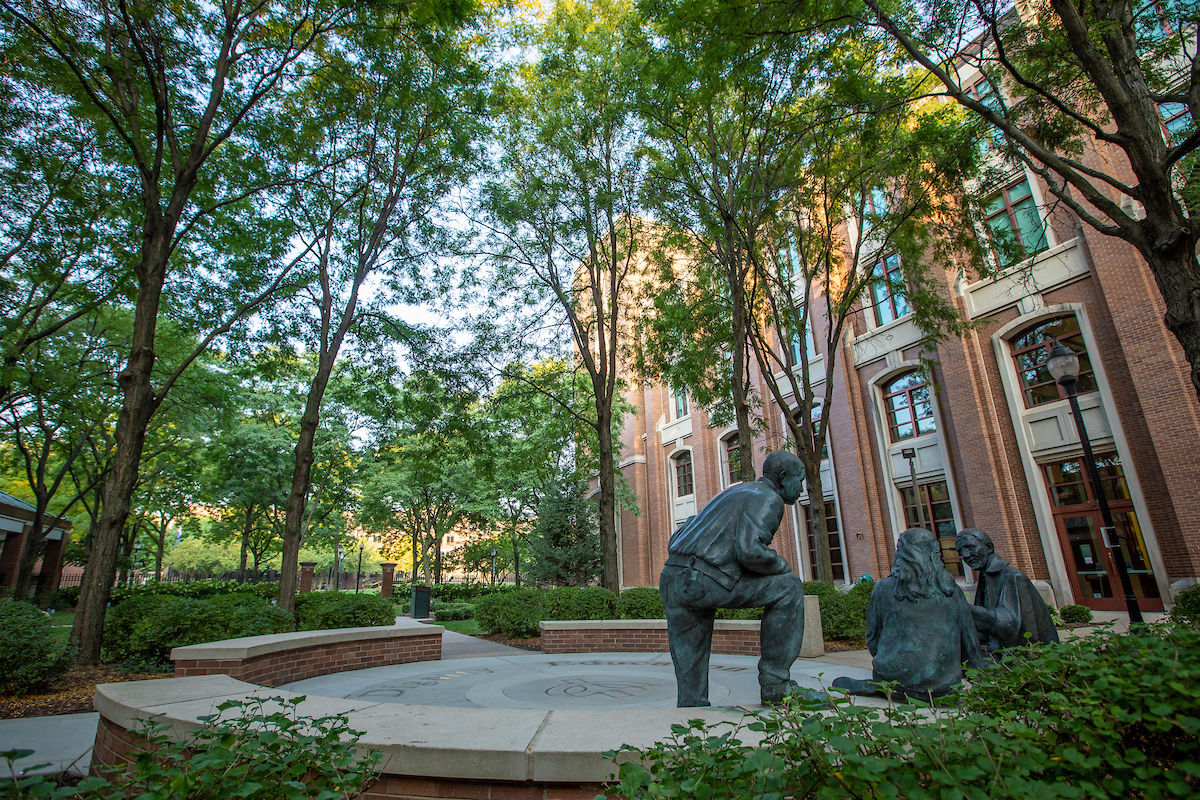 (DePaul University/Jeff Carrion)
(DePaul University/Jeff Carrion)
Several weeks into a challenging and unprecedented spring quarter, DePaul's Institutional Research & Market Analytics division sent out a survey to a representative population of students to assess the issues they faced as they switched to remote instruction near the beginning of the COVID-19 pandemic.The survey covered the following themes:
- Academic: Doing well in a remote environment; impact on progress towards degree completion.
- Social: Connections to students and instructors.
- Financial: Ability to pay tuition and bills; access to healthcare, housing and food.
- Technological: Adjusting to online instruction; having access to the necessary technology.
Nearly 1,600 students responded to the survey and were given the option to request that someone from the university follow up with them about specific concerns. Over 300 students took this option, which was handled by either Student Affairs or the student's home college.
A few highlights from the survey results were as follows:
- By week seven of the spring quarter (when the survey was sent out), most students weren't having technological problems with their courses.
- Students often reported trouble with social connections and a loss of sense of community. Just over half (55%) said they were satisfied with their interactions with faculty members, while less than a third (28%) said they were satisfied with their interactions with classmates.
- More than half of students (55%) reported that they were often worried (i.e. either worried “always" or “most of the time") about financial issues such as paying bills. Other common worries included losing social connections (54%), being able to access resources for classes (43%) and having access to healthcare (30%).
- Approximately three quarters of students (~75%) reported struggling with time management during the spring quarter's remote instruction, regardless of whether the student had previous experience with online courses.
In response to the results, the faculty training for online teaching was updated to cover these issues. Faculty were given suggestions and strategies to help them do such things as:
- Help students build better social connections in a remote setting.
- Connect students with available resources through the university, including counseling, tutoring help and other services.
- Help students manage their time during the transition.
- Keep track of student engagement, to identify and help struggling students sooner.
- Structure course content in order to allow for flexibility when tech issues arise.
“Data from the surveys have been shared and discussed with academic deans and vice presidents, along with staff working on relevant issues," says Caryn Chaden, associate provost for student success and accreditation. “The Center for Teaching and Learning has also shared information from the survey for training faculty regarding online learning, and highlights have been shared with faculty through messages from the provost. We are all grateful to students for completing these surveys and sharing their views."
In addition to the survey data being shared with the Center for Teaching and Learning, Student Affairs, and each college, the DePaul Online Teaching Series incorporated specific training based on issues that arose from the results of the spring survey.
IRMA has relaunched the survey recently to follow up on the issues that surfaced in the spring and understand how students' experiences have changed this fall. A representative population of students will receive the survey, and IRMA is currently coordinating with DePaul's Student Government Association to come up with a strategy for sharing the results from both the spring and upcoming fall surveys with the student body.